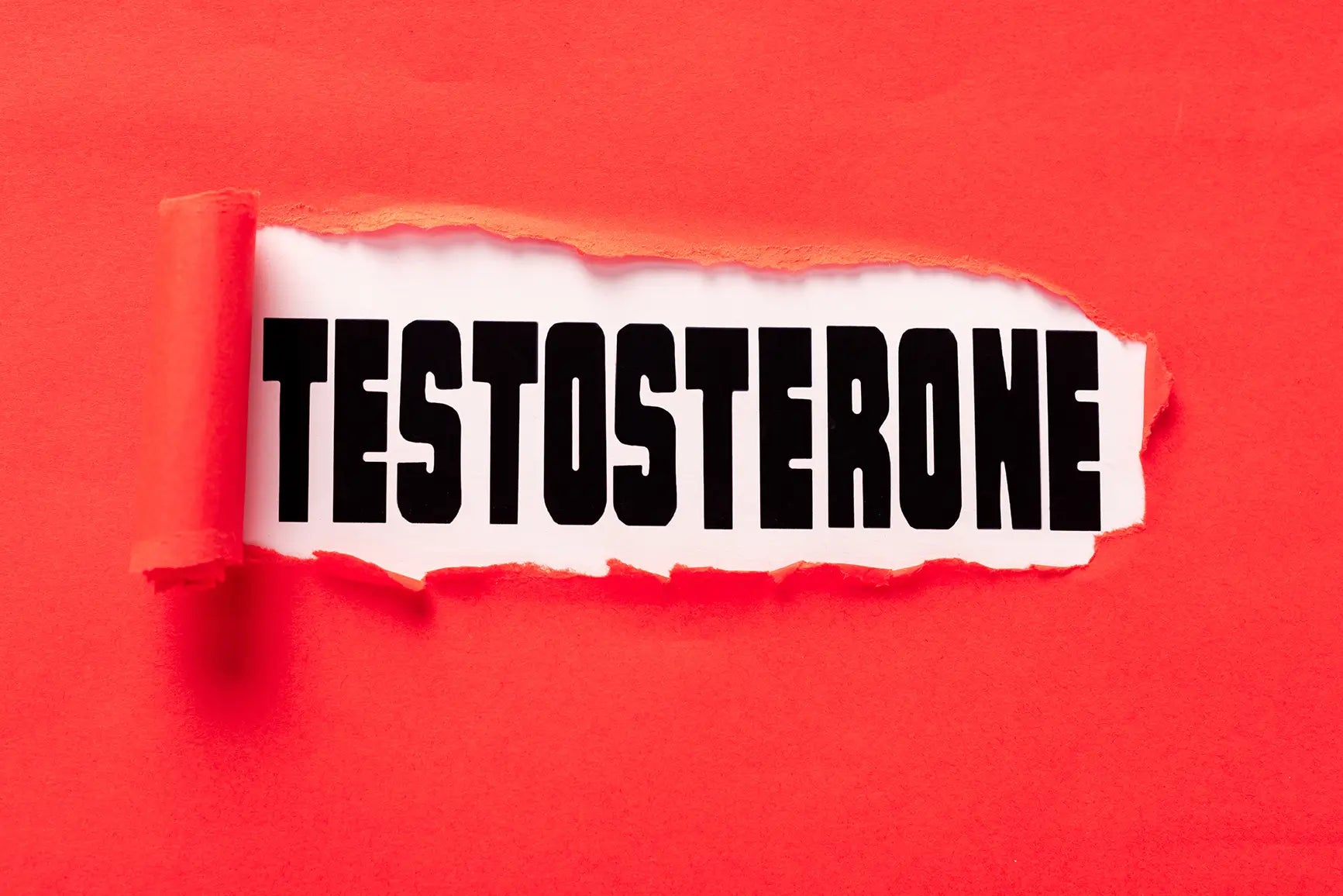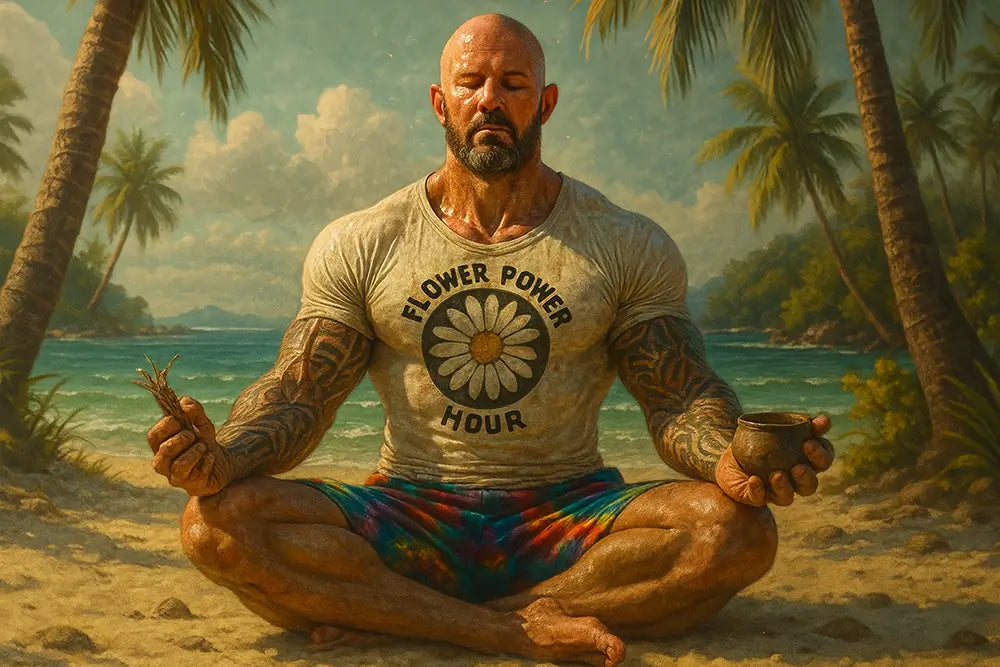Ever wondered about the subtle forces that can impact your overall well-being? Step into the realm of low testosterone symptoms – a silent adversary stealthily eroding the vitality and vigour of modern men.
Low testosterone levels used to be an aging man issue, but sadly they are now a modern man issue. Did you know a man in his 20s in 2024 has the same testosterone levels that a 70-year-old did in 1990? This is creating considerable health issues for men at younger ages than ever, so it's key that all men are aware of the maze of symptoms and how to prevent testosterone deficiency to unlock the path toward resilience and well-being.
So, are you ready to explore the depths of low testosterone, unravel its complexities, and emerge armed with the knowledge and tools to reclaim your masculine vitality?
Let's dive deep!
Identifying Low Testosterone Symptoms
Do you feel as if your get-up-and-go has got up and gone, leaving you utterly exhausted and bewildered? Low testosterone may be the hidden cause of this change. Let’s shine a torch on some of the most common signs and symptoms, understanding the language that your body may be speaking:
Decreased Libido and Sexual Dysfunction
A marked decrease in sex drive, otherwise known as libido, is a common sign of low testosterone. In addition, men can have trouble performing sexually. Erectile Dysfunction is not usually caused by low testosterone but lack of spontaneous erections and firmness can lead to performance anxiety - thereby causing ED.
Sex drive is intricately regulated by testosterone; its lack thereof will lead to reduced libido as well as difficulties obtaining or keeping an erection.
Loss of morning erections (6-8 am is when testosterone levels are highest) is often the first sign of low T - don’t accept this as part of aging! It’s a symptom that needs attention.
Fatigue and Low Energy Levels
Those with low testosterone often experience unrelenting fatigue even after sufficient sleep and generally feel run down. However, energy production is influenced by Testosterone, which, when it falls, can result in exhaustion and reduced stamina.
Mood Swings, Irritability, and Depression
Erratic emotional states like extreme irritability, mood swings, or depression are all indicators of low testosterone. The recognition of mood swings holds pivotal importance in addressing underlying hormonal issues.
Moreover, the impact of reduced testosterone extends beyond the physical realm, altering neurotransmitters crucial for mood modulation. Acknowledging these emotional fluctuations becomes a cornerstone for a thorough grasp of hormonal well-being.
Loss of Muscle Mass and Strength
Even with consistent physical activity, a noticeable decline in muscle mass and strength serves as a symptom of low testosterone. Identifying these physical transformations is essential for early intervention.
Low testosterone symptoms demonstrate that the loss of muscle mass and strength underscores the hormone's critical role in maintaining peak physical performance. Addressing these symptoms becomes a catalyst for significant improvements in overall health.
Body fat increases, and body composition changes
Some symptoms of low testosterone include increased body fat, particularly in the abdominal area, and changes in overall body composition. This may indicate a lowering of hormonal balance. Unwelcome moobs or man boobs are also a common sign that you may be becoming oestrogen dominant, which negatively impacts testosterone production.
Moreover, some of the low testosterone symptoms are metabolic changes leading to a redistribution of body fat. Recognising such changes in how the body is made up is one way to understand what hormone variations mean.
Cognitive problems, including poor concentration and memory recall
Just like women in menopause, men experience similar declining cognitive health.
Problems like difficulty concentrating and forgetting things are recognised symptoms of low testosterone. These cognitive modifications must be understood if full hormonal health awareness is to be achieved.
In addition, cognitive function can be affected by testosterone receptors in the brain. Lowered levels may result in a lack of focus, mental clarity, and memory difficulties. Perceiving these cognitive signs will help achieve a holistic understanding of hormonal well-being.
Age-Related Decline Vs. Abnormal Levels
Embark on a journey through the inevitable ageing process, where changes unfold, and one significant transformation involves a natural decline in testosterone levels. Let's unravel the intricacies of testosterone fluctuations:
Understanding Natural Testosterone Decline with Age
Testosterone levels now are half of what they were 50 years ago. Each generation of men is experiencing a much faster decline than the previous.
Yes, we know that testosterone levels should naturally decline with age, but this is happening much quicker than ever. 1 in 5 men under 30 are now experiencing low testosterone levels, and it’s been reported that 45% of men over 40 are experiencing symptoms of andropause (male menopause). A very real and common issue that shouldn’t be underestimated.
Differentiating Between Normal Aging and Pathological Low Testosterone symptoms
It is critical to distinguish between normal ageing changes and low testosterone symptoms indicative of pathological imbalances. When contemplating low testosterone symptoms, distinguishing between these conditions becomes critical, ensuring a proactive approach to resolving health risks related to hormonal imbalances.
It's reported that only 5% of today’s low testosterone has a pathological cause.
The majority is caused by poor lifestyles, environmental issues and ageing.
Health Risks Associated with Untreated Low Testosterone
The recent research efforts have created a complex web of relationships that link low testosterone and a number of diseases, thereby revealing the intricate relationship between hormonal balance and general health. During Covid, it was found that men with low T were the reason more men over 50 were dying around the world than women - showing how fundamental it is to keep levels healthy.
Obesity, Diabetes, and High Blood Pressure
There are interesting associations between low testosterone and certain health conditions. In a study of 2,100 men aged over 45 years, obese men had significantly higher odds of having low testosterone levels compared to those who were not. The same was true for men with diabetes or high blood pressure.
Though it’s not declared that low testosterone causes these diseases, one could be considered to exist. Low testosterone may also develop in men suffering from other illnesses or poor general health. Currently, more investigations are being carried out on the complicated connection between hormone balance and different health conditions.
Heart Health and Low T
It may not be heart-smart to ignore low testosterone levels. Some studies indicate that there is an increase in the risk of developing heart disease and hypertension due to low testosterone amounts in one’s body. It is like a double-edged sword; low testosterone is associated with issues such as obesity and insulin resistance, which are unfriendly to the heart.
Apart from that, this could become Superman for the arteries because if your hormones switch from testosterone to oestrogen, you will have high cholesterol levels. In short, letting your low T level remain untreated might just screw around with your heart’s mojo.
Low T and Metabolic Issues
Low testosterone isn't just about mood swings; it's a buddy to metabolic issues. When testosterone takes a dip, so does your ability to handle insulin and keep blood sugar in check. Plus, it's in cahoots with obesity.
However, the fat cells gobble up testosterone, making things worse. It's a bit of a love-hate story between low T and metabolic troubles. Tackling low testosterone could be a key player in preventing a metabolic syndrome showdown.
Hormonal Imbalances and the Long Game
Hormonal imbalance is like playing the long game with your health if you ignore it, especially low testosterone. The superstars that maintain everything in balance are hormones. When they go awry, it may indicate a greater likelihood of combating depression rather than just feeling depressed. If that's not enough, untreated hormone imbalances can cause problems like erectile dysfunction, which can seriously disrupt your romantic life. Therefore, addressing and resolving those hormonal mishaps makes sense before they become chronic health issues.
Wrapping Up!
Think of your well-being as a long-term goal – especially when tackling the challenges of low testosterone symptoms. It's not just about fixing symptoms; it's about embracing a vibrant, holistic lifestyle which can help you redefine the way you age - powerfully and proactively.
Picture a superhero training montage – healthy choices, balanced meals, workouts that make you feel like a powerhouse, and mental well-being as your secret weapon. These aren't just steps but leaps towards a resilient, thriving life. Breaking it down into simple daily activities can really help make this more achievable.
Check our other blogs for more tips and advice on how to support your testosterone health.






Share:
Low Testosterone: How to spot the signs and symptoms in your man.
Do I have low Testosterone?